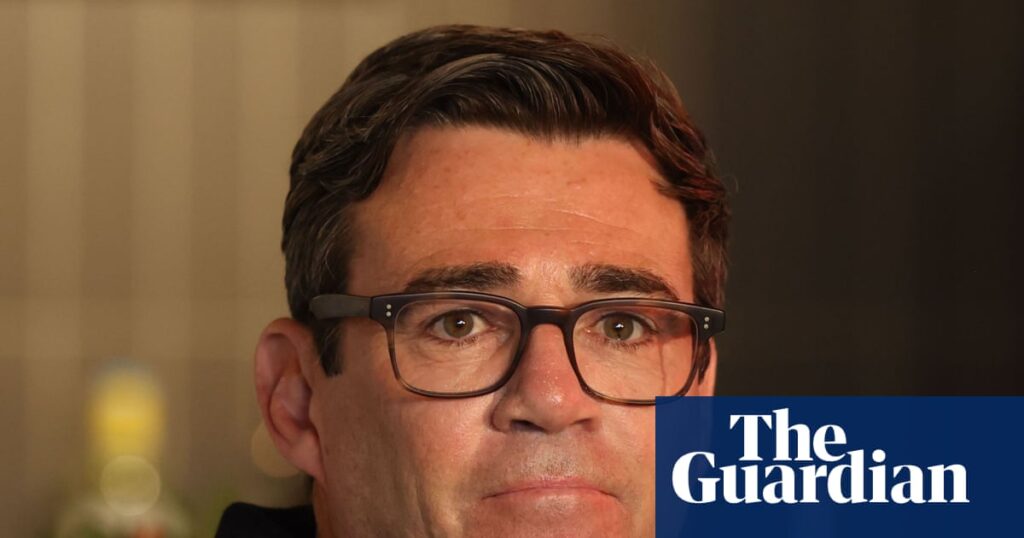Andy Burnham has hit back at Labour colleagues who have criticised him for challenging Keir Starmer during a Labour party conference that has been dominated by speculation over the prime minister’s leadership.
The Greater Manchester mayor rejected attacks by members of his own party who have accused him of launching a pre-emptive putsch against the party leader, saying the criticism “sticks in my throat”.
Speaking at a live recording of the Guardian’s Politics Weekly podcast in Liverpool, he repeatedly refused to say whether he had spoken to Labour MPs about returning to Westminster and challenging for the leadership of his party.
But he also attempted to calm relations with Downing Street, saying he had no ability to launch a leadership campaign while he was still mayor.
“It sticks in my throat somewhat to have people who have just arrived on the scene to be throwing some of the comments at me that they have done,” he said. “I did everything I possibly could to make this conference a success, and I would suggest more people did.”
After days of questions about his leadership ambitions – fuelled in part by an interview he gave to the Telegraph in which he said Labour MPs had contacted him over the summer about a possible bid – Burnham tried to quell the speculation.
“I can’t launch a leadership campaign, I’m not in parliament,” he said. “So that’s the bottom line.”
But asked whether he had discussed the idea with colleagues, he said: “I’m not going to go and say every conversation I have with every MP. I have many conversations with MPs.”
Burnham was speaking soon after Rachel Reeves appeared to criticise him for previous comments he made that the UK should not be “in hock” to the bond markets.
The chancellor warned in a speech: “There is nothing progressive, nothing Labour, about government using one in every £10 of public money it spends on financing debt interest.”
Burnham hit back, saying: “If you change the way things are run, you can make public money go further … I reject entirely this idea that I am hopeless and have no idea about how to make it add up.”
He also rejected the call from his former cabinet colleague Alan Johnson to rule out a leadership tilt. “I remember Mr Johnson not being a model of loyalty when it came to Jeremy Corbyn,” Burnham said.
But he added: “Someone has to speak up for some of the ideas that we need to have that plan to beat Reform.”
He urged the prime minister to be more radical to help the party keep seats in Wales, Scotland and other parts of the UK at next May’s local and devolved elections.
after newsletter promotion
“There’s a calling for more to take to the doorstep,” he said. “If I look at the world right now, and you think of the populist right – whatever we may think about what they’re doing, they are putting big things on the table.
“Well, we have to do the same the other way, never pandering to them, but put big ideas on the table.”
The Manchester mayor discussed several changes he would make to the government’s economic policies, including rewriting the fiscal rules to make it easier to invest, scrapping the two-child benefit cap, imposing a land value tax and launching a review of council tax.
He defended his previous comments about the bond markets, insisting he did not mean that the government should borrow billions of pounds more to finance policies such as ending the two-child cap.
Instead, he said the chancellor should consider modifying her debt rule – which says debt must be forecast to fall at the end of a five-year period – to allow her to borrow more capital investment.
He also criticised two other central planks of government policy – launching digital ID cards and refusing to rule out rejoining the EU.
Talking about ID cards, which the prime minister announced on the eve of conference as a way for employers to check whether someone has the right to work in the UK, Burnham said simply “Not now”.
On Britain’s membership of the EU, he said: “I want to rejoin. I hope, in my lifetime, I see this country rejoin the European Union.
“I believe in unions of all kinds. The union that is the UK, the European Union, trade unions, [all] benefited this country. People get to prosper more when they’re part of unions of countries.”

